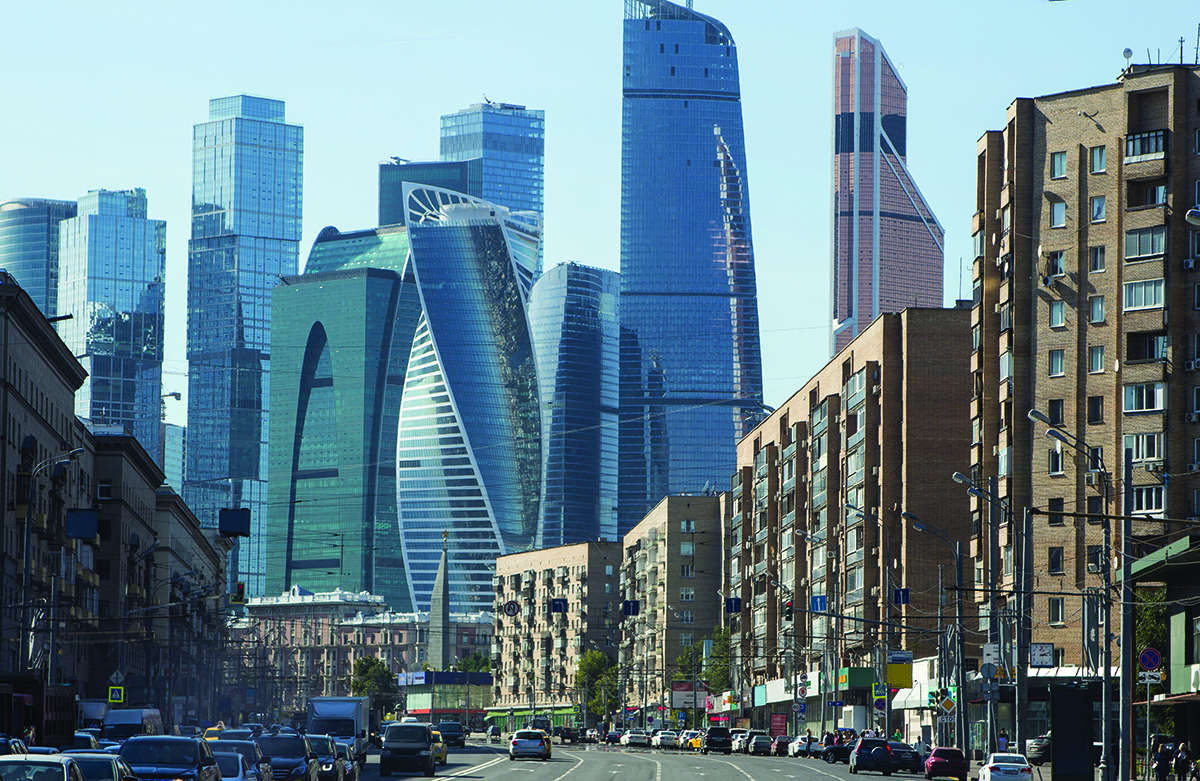When coming to a different country (especially for the first time) researchers may have questions, concerns, and even stereotypes they need to ask about in order to feel comfortable and to gain the deepest insights for their projects. In writing this article, I have enlisted verbatim opinions from foreign and local partners, as well as clients, to highlight the scope and credibility of the Russian research experience.
How Candid Are Russian Respondents?
Foreign clients often ask if Russian participants will openly criticize things presented to them. Fortunately, openness and sincerity are part of the character of Russian people. When they dislike something, they say so.
We suspect that their reasons for honesty and sincerity—at work or in personal relationships—are founded on the Christian background of Russian values and on 70 years of Soviet history. Marina Nefedova of Insight & Planning of Kellogg Rus LLC, agrees that “Russian residents are never embarrassed to voice their sincere opinions on the tested ideas, even if that opinion is fully negative.”
 How Patient Are Russian Respondents?
How Patient Are Russian Respondents?
When focus groups are being conducted, it sometimes happens that they last longer than planned because additional questions or ideas develop. Many foreign partners and clients watching groups behind the mirror are sure that when the official duration of the group interview occurs, respondents will just stand up and leave the focus room. This rarely, if ever, happens in Russia. Patience and endurance are traits traditionally valued in Russia. Training and development of these traits are quite typical in many aspects of Russian life (e.g., its educational system). Tatyana Seferova, Qualitative Research Director of Brif in Kazakhstan (the biggest former Soviet republic) notes that such innate politeness comes from long-standing guest-host traditions. She says, “At the latent level, coming to a focus group discussion is similar to visiting…the moderator is perceived as a host, so respondents show their respect by answering all additional questions and staying longer.”
Of course, as moderators we try not to abuse this politeness. Seferova adds, “Not all respondents are that patient. A well-balanced guide—a good combination of direct questions, projective techniques and visual materials—is critical for vivid discussion. It is very important that respondents are not bored in the group; when people are really bored they are not very patient.”
Another factor that undermines patience is when materials tested are too numerous and not reader friendly; respondents can lose enthusiasm and stay in the group just to be polite. It should be noted that patience does not mean indifference. In cases of injustice, Russians react promptly, protest, and are not patient.
Nefedova notes an emerging trend for valuing one’s time, especially in a big city like Moscow with a faster pace of life. She concedes, “Respondents will not stand up and go away, but they might mention that the official discussion time is over.”
How Well-Traveled Are Russians Outside of Russia?
As part of the warm-up for group discussion we sometimes ask respondents to say a few words about their vacations and countries they particularly like while traveling. People here are eager and curious to discover other countries. Many people in Russia are broad-minded and well educated; they want to see for themselves the things they read about, whether pieces of art, lifestyles, or the beauties of nature of other countries. One of the reasons we use travel as a common warm-up exercise in Russia is that participants often evaluate a product or concept by referencing examples of similar things they have seen while traveling.
 What Are the Logistics of Conducting Qualitative Research in Russia?
What Are the Logistics of Conducting Qualitative Research in Russia?
Carolyn Chmielewski, a Lead User Researcher of BlaBlaCar, based in Paris, France, has considerable experience conducting research projects in Russia. She emphasizes the relevance of detailed explanations of all project organizational aspects: “We often need help understanding simple logistical things related to recruitment. What are the salary ranges that we should expect to recruit? What are representative cities to recruit from? What is an appropriate incentive? Will people be willing to invite us into their homes? Will people accept being filmed?” Chmielewski appreciates when the local research agency provides additional useful information for market understanding including store brands, family structure, and holiday information, so that we “were able to understand what our interviewees were talking about more quickly.”
Martin Swanson, Senior Consultant of Ears&Eyes GmbH, Germany, knows, “It is important to keep in mind that Russia’s capital of Moscow is different from smaller provincial cities in lifestyles, attitudes, and levels of income.”
We at Market Profile are often asked by foreign clients to offer research in a “typical regional Russian city.” But Russia is very big and embraces many ethnic groups, each with different cultural traditions. We should always take into consideration the region that is the focus of attention: Central Russia, the Urals, the South, Siberia, etc. Furthermore, the various options of cities range from towns of less than half a million people and a few hours drive by car from Moscow to big dynamic cities such as Yekaterinburg, the capital of the Urals.
In many regions of Russia, including rather small towns, there are focus rooms with one-way mirror setups or other technical solutions such as video link and online web-streaming of the interviews or groups.
Preparing and sharing relevant market overviews is very beneficial for the project since clients get an opportunity to learn something new before coming to Russia. This is a win-win situation: clients are more aware and better informed when the interviews or focus groups start, resulting in a more productive flow.
Swanson further advises, “In case it is needed to test any products during the groups it is better to transport these yourself when travelling to Russia.” If this is not possible, then products should be shipped to Russia far in advance as customs procedures can be difficult and erratic, especially if sending test materials via postal services, “so plan a long time and make sure to have all the right papers.”
 What Qualitative Methodologies Are Trending in Russia?
What Qualitative Methodologies Are Trending in Russia?
We see a constant demand for “old school” qualitative research methods, such as focus groups, in-depth interviews, and in-home interviews. Clients continue to value these screenshots of customers (lifestyle, perceptions of products, services, brands). Chmielewski contends that by using the same methodologies across different countries, researchers can see how the motivations and expectations of the Russian people are shaped by their unique historical and cultural experiences.
Online qualitative research methods actively compete with old school offline research methods. Offline and online methods sometimes create good synergy and complement each other. For example, Swanson cites success of “classic focus groups with pre-online diary for exploration of usage experience.” Seferova agrees that online research methods are developing, but emphasizes that “they have limitations due to uneven Internet penetration, which varies a lot depending on the size of the city or town and the age group of respondents.”
The growing relevance of social media research in Russia is in line with the constant development of the online space in the life of consumers. Irina Mamaeva, Senior Analyst Market Research, Europe/India/Africa of Amway enthuses, “Now we sometimes use WhatsApp to collect feedback about our products from respondents in a prompt way. It is effective and very fast. We also can conduct new product tests with support of WhatsApp. All participants of the test are invited to the WhatsApp group created by us, and we can spend two to three weeks with them while they are testing new products such as vitamins or skin care.”
Olga Rybakova, Director of Market Research Center of Socium, Yekaterin-burg, spoke to the trend to visit Russian consumers at home. “There is growing demand for ethnographic research, especially in-home visits. The market has become much more saturated than it used to be, so now manufacturers are targeting very specific audiences. Quite often standard socio-demographic recruitment criteria are complemented by psychographic criteria. To stay in line with the developing world of consumer manufacturers, we need to get information not only on verbal behavior but also to witness real life. That’s why ethnographic research is so relevant today.” Chmielewski further observes, “We found that spending time with the local ethnographer/moderator and translator was also an incredibly valuable part of our experience; we knew so little of the general cultural and historical context that they were able to provide important information that helped us understand what we observed in the interviews and home visits. For example, we were unaware of the historical context of the dacha (country house with a plot of land that many Russian families have in addition to the apartment house in the city) before visiting. The local team was able to explain the cultural significance of the dacha to us, so that when our interviewees spoke about it, we were able to better understand what it meant to them.”
Mamaeva adds important commentary related to in-home visits organized in Russia: “When it is relevant to interview a respondent in the kitchen, we should take into consideration the fact that standard kitchens of a Russian family with average income are usually small and separate, not united with the living room. So this can imply limitations to the number of visitors interviewing the respondent at his or her place.” Market Profile contends there is always a solution. If a kitchen is small, the company recommends that researchers visit the kitchen first, ask the respondent to point out everything important, and then move to a different room where all visitors can be accommodated. Project nuances and the number of visitors should be agreed upon in advance.
Swanson notes, “Making store checks by visiting the places of purchases mentioned in focus groups or interviews are also very important in order to understand different product channels and visit them before or after the groups to really grasp consumer preferences of shops.” Nefedova also emphasizes the relevance of accompanied visits to stores together with respondents “to observe selection and purchase, and to ask consumers questions on this very recent shopping experience.”
An important trend is the desire of manufacturers’ representatives to ask questions of respondents directly at the in-depth interviews or in-home visits, sometimes with the help of the translator or with trained in-house moderators who conduct focus groups on a regular basis and—resort to the services of research agencies only to work out or fine-tune research instruments (screeners, guides) and recruit respondents. The reasons for this trend are the high value of constant and active dialogue with consumers developing a bond with them, and the personal experience of listening to consumer language, needs, and challenges in order to promptly respond to them through the activities of the company.
Another feature of this trend is workshop sessions as part of qualitative research projects. These workshops are often conducted midstream or at the end of the consumer research. Whether comprising manufacturers only or mixed with consumers, such workshops give every opportunity to promptly process and implement research conclusions after active discussion with customers. Chmielewski fully supports this point, “Yes! Nothing is better for creating real empathy than the client seeing the real experience of the consumer with their own eyes!”
Furthermore, Swanson points out that there is a trend towards agile/flexible research methods, especially labs: where the stimulus is quickly fine-tuned after one or two focus groups, and then the improved material is tested in following groups. Strong collaboration between designers, marketing, research agency, and communication agency is required.” Adds Chmielewski, “The trend towards agile development highlights exactly why it is so important for clients to be present and on the ground for fieldwork. It’s crucial to have information as fast as possible, and for everyone to be involved in the creative process. We’re moving away from sharing detailed research reports and towards a process that includes active research involvement as part of the creative brainstorming cycle.”
Conclusions
Foreign clients conducting business in Russia continue to find in-person interviews and ethnographies helpful in understanding how the country’s history and cultures inform Russians’ behaviors. Manufacturing companies are taking this a step further by pairing their manufacturers’ representatives with moderators, translators, or respondents, with an intent to deepen their empathy with these consumers. Meanwhile, Russia’s honest and polite consumers help to make for enjoyable in-country research experiences.


Be the first to comment